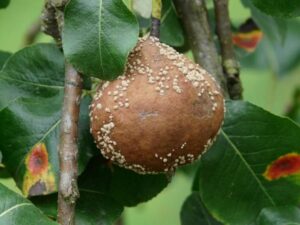Back to: Pre Vocational Studies JSS 1
Welcome to class!
In today’s class, we’re going to be talking about classification of crops based on life span. I trust you will enjoy the class!
Introduction
Crop plants, the foundation of agriculture, can be classified based on how long they live. This classification helps us understand their growth patterns, cultivation requirements, and the timing of harvests. Let’s explore the different categories of crop plants based on their life span.
Classification of Crop Plants Based on Life Span
Annuals Crops

- Definition: Annuals are plants that complete their entire life cycle within a single growing season. They germinate, grow, flower, produce seeds, and die within a year.
- Examples: Maize, rice, wheat, tomatoes, sunflowers, and beans.
- Characteristics:
- Short life cycle, typically ranging from a few weeks to several months.
- Rapid growth, often exhibiting significant height and biomass accumulation within a short period.
- High seed production, ensuring the continuation of the species through the next generation.
- Often planted in rows or fields for efficient cultivation and harvesting.
- Cultivation:
- Typically planted in the spring or early summer to take advantage of favorable growing conditions.
- Require regular watering and fertilization to support their rapid growth and development.
- Can be harvested multiple times in a season for certain crops, such as lettuce or spinach.
Biennials Crops

- Definition: Biennials are plants that take two years to complete their life cycle. In the first year, they grow leaves and store energy. In the second year, they flower, produce seeds, and die.
- Examples: Carrots, beets, cabbage, and parsley.
- Characteristics:
- Longer life cycle than annuals, allowing for greater root or stem development.
- Often produce larger, edible roots or stems, which are prized for their nutritional value.
- Usually planted in the fall to ensure they have sufficient time to establish themselves before the winter.
- Cultivation:
- Require well-drained soil and consistent watering throughout the year.
- May need protection from frost during the winter to prevent damage to the plants.
Perennials Crops

- Definition: Perennials are plants that live for more than two years. They continue to grow, flower, and produce seeds year after year.
- Examples: Cassava, plantains, sugarcane, bamboo, and fruit trees.
- Characteristics:
- Long life span, ranging from several years to decades or even centuries.
- Can produce multiple harvests over several years, providing a consistent source of food or other resources.
- Often have woody stems or deep roots, enabling them to survive harsh environmental conditions.
- Cultivation:
- May require pruning or thinning to maintain shape and productivity.
- Can be propagated from cuttings, seeds, or divisions to establish new plants.
Additional Crops Based on life span
- Evergreen Perennials: These perennials retain their leaves year-round, such as palm trees and pine trees.
- Deciduous Perennials: These perennials lose their leaves during the winter, such as maple trees and oak trees.
- Self-Seeding Annuals: Some annuals can produce seeds that fall to the ground and germinate the following year, making them appear to be perennials.
Summary
Understanding the different life spans of crop plants is essential for effective agricultural practices. By knowing whether a plant is an annual, biennial, or perennial, farmers can plan their planting, harvesting, and maintenance schedules accordingly. This knowledge also helps in selecting appropriate crop varieties for different regions and climates.
Evaluation:
How are crop plants classified based on their life span?
We have come to the end of today’s class. I hope you enjoyed the class!
In the next class, we shall be discussing the uses of crop.
In case you require further assistance or have any questions, feel free to ask in the comment section below, and trust us to respond as soon as possible. Well done and see you in the next class!
